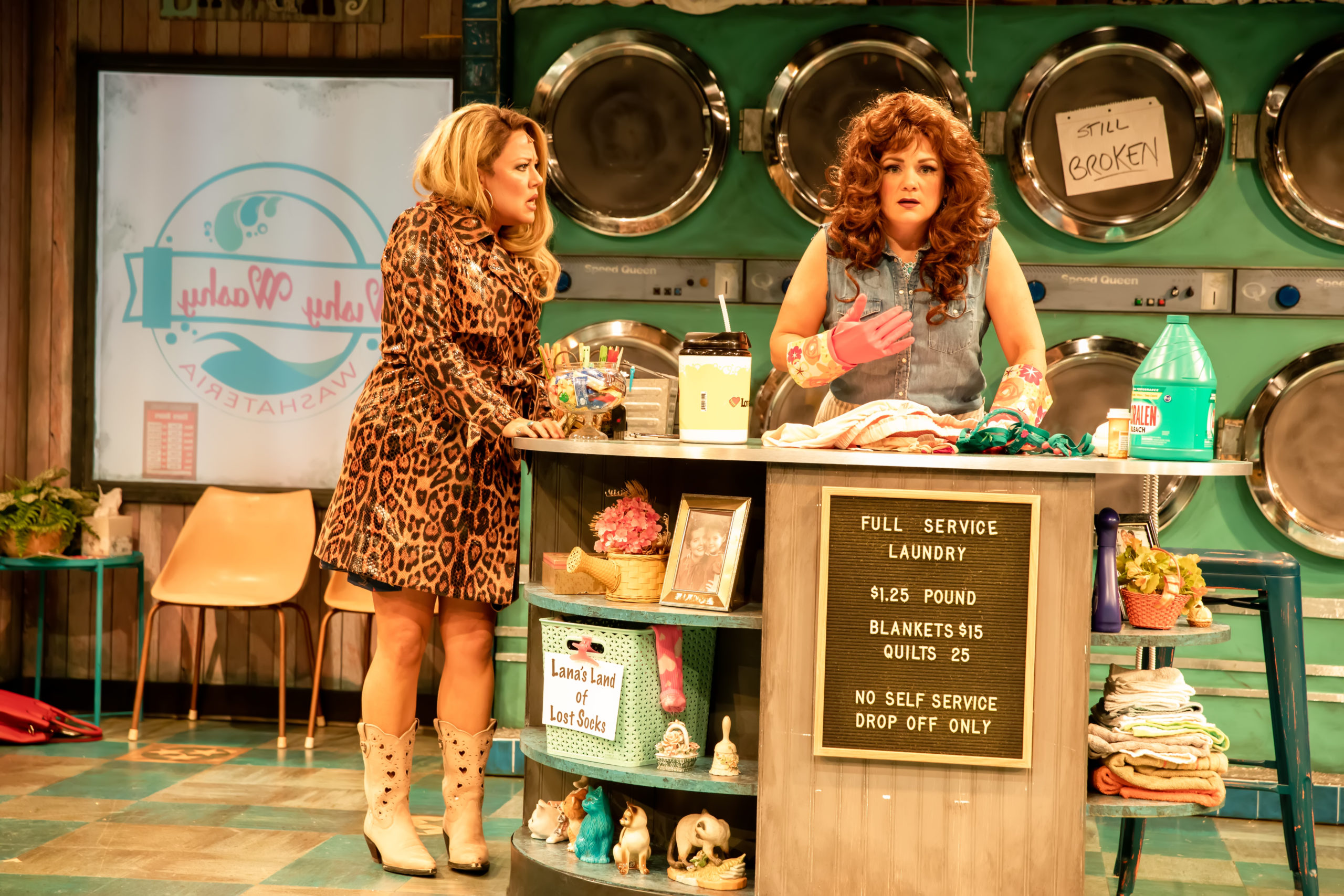Texas Performing Arts Groups Face Behind the Scenes Drama as They Plot a Coronavirus Return
Inside an Ever-Shifting Theatrical Landscape
BY Tarra Gaines //The Houston Ballet hopes to leap back in 2021 after some possible special holiday performances and digital "Love Letters" to Houston.
“Who knew we could work this hard without doing any theater?” So muses Houston’s Alley Theatre artistic director Rob Melrose during a recent conversation with PaperCity. But we’d lay odds the sentiment has been echoed by most music, dance and theater company directors across Texas.
When the coronavirus pandemic rolled into Texas many performing arts organizations hit the pause button, vowed the show would eventually go on and hunkered down for what they believed would be a short period for recharging and maybe creating from home. But as the weeks turned to months, the offstage work and drama mounted as most companies had to cancel all their spring and summer shows.
Like professional sports, performing art organizations must brave unique COVID challenges in order to present experiences best seen live in the company of other humans. And like professional sports, those performing “teams” would need to imagine every possible scenario and counter scenario for when it might be safe to return to their field, a.k.a the stage. But unlike professional sports, which have already returned in a major way with the MLB, NBA and NHL all playing games in empty stadiums, performing arts groups largely cannot hold events without any fans.
From venue ventilation to singing hazards to actor bubble quarantines, artistic directors and company managers behind the scenes now tackle issues they likely never imagined. They hope planning and creativity will count for finding solutions.
Many of the large performing arts organizations will partner with local medical systems and hospitals like Methodist for frequent testing and tracing. But most are having go back to basic and deconstruct every facet of what it means to perform live in a space with an audience.
Breath, Sweat & Spit
During a June Houston Arts Alliance Zoom “Return to Work” panel discussion, Stages manager director, Mark Folkes, reported he had made a “fascinating” deep study into HVAC systems. The new Gordy theater complex facilities circulates 50 percent outdoor air through the building, a very good thing, and they’ve installed MERV 13 air filters, the type used in medical environments. They also set up policies to have separate work times and teams.
Theatre Under the Stars artistic director Dan Knechtges and executive director Hillary Hart recently held a virtual Q&A with subscribers. Among the other behind the scenes stories told, Knechtges revealed his strategizing has reached droplet levels as he ponders how to arrange the “spitters” and “non-spitters” in the orchestra pit.
Do the wind musicians need a separate space from the string musicians? Would plexiglass divides help?
He also described how he sits in on a lot of virtual meetings with the unions who have their own consulting doctors, scientists and health experts. One positive note, as much as artists singing on each other can be dangerous, the most recent studies point to sweat not transmitting the virus.
“I think we’re good if we’re dancing and sweat is coming off, but actors spit, so we’ve been measuring from the edge of the stage how far back we need to be to make sure we’re really safe on all of those issues,” he describes with a nod to the infamous Jonathan Groff closeup that became a meme sensation after Disney’s Hamilton broadcast.
Meanwhile TUTS’s home field, the Hobby Center, recently announced they’ve worked with ISSA, the international trade association for the cleaning industry, to achieve Global Biorisk Advisory Council STAR™ accreditation, which they tout as the gold standard for prepared facilities.
None of the companies can strategize in isolation. Besides constant reviewing of Texas Health Department and CDC guidelines, they also need to consult with the national theater unions, including Actors’ Equity. Melrose tells PaperCity that all Equity theaters need to have a safety plan approved for each show before they go ahead.
Calendar Drama & Stages
Some smaller and midsized theater companies will try to stay nimble about when to resume. Stages still hopes to get its Honky Tonk Laundry out of the spin cycle and back into the Gordy in October.
But many large and medium sized performing art companies have cancelled or moved their fall shows, then put their hope in the holidays. Trying to maintain a realistic but optimistic mindset, they wait to see if the infection numbers will lower enough for holiday shows in November and December, possibly with the audience socially distancing across the theaters. Even then, they’ll play it safe, especially for younger performers.

Stages’ plans for the holidays include two shows, a one-man storytelling version of its annual Texas Panto, and a second starring a real-life married duo. TUTS is sticking with with the previously planned Little Mermaid, but likely won’t include young performers from its Humphreys School, a long time tradition.
In the just announced revision of its 2020-21 season, the Alley begins with Christmas Carol but not the ghost and kid filled one audiences have known for two decades. Instead, the Alley is turning to Doris Baizley’s stripped down adaptation framed as a story of an acting company having to produce the classic after losing its leading actors and set.
At the same time these performing arts organizations schedule for continuous uncertainty, they’re trying to avoid keeping subscribers in a perpetual state of limbo.
The Houston Ballet already announced they’ll offer a virtual production of Love Letters and replace the Nutcracker with a limited number of special holiday performances. As PaperCity previously reported, Houston Grand Opera, cancelled all live productions until April. In the same June HAA conference, HGO managing director Perryn Leech noted that a mammoth production like Wagner’s Parsifal, previously slated for January, would need to begin rehearsals in October, an impossibility now.
Back to Basics
While every company has its own individual behind the scenes dramas to play, the Alley offers a good example of the domino effect every wave of virus news brings to performing arts organizations.
“I feel like I’ve planned about 20 different seasons since March. Things change every week, and I have to adjust,” Melrose says.
Like many of the larger arts companies across the state, the Alley had to cut its budget and staff. Now the revised lineup relies on the Alley’s resident acting company along with its in-house designers and directors. Director of design Michael Locher will create one repertory set that can be used throughout the season with visual tweaks for each show.
“The people we have left we make sure we’re fully employing them, making sure every show we do leans heavily on the resident acting company,” Melrose says.
The Alley cut its season down to six shows, including Carol, and put them all into the larger Hubbard stage. In January, Houston’s theater company will put on the world premiere Born With Teeth a two-man, historical what-if play about a tempestuous relationship between William Shakespeare and Christopher Marlowe.
The rest of the season contains remnants of the lineup first announced in April, including Waiting for Godot, Dead Man’s Cell Phone and a second world premiere, the Texas-set High School Play: A Nostalgia Fest. The big surprise addition becomes the Pulitzer Prize winning Sweat, a production collaboration with Ensemble Theatre.
“A lot of our board members have wanted Ensemble and the Alley to do more things together, so we’re excited about this,” Melrose says.
Meanwhile the plans and counter plans go on. While it might become a bladder stretch with a show like Godot, Melrose says all of the productions can run without an intermission, a safety option if sending the entire audience to the restroom at the same time in February or March is still an issue.
They even conceived one scenario very loosely resembling the NBA’s Disney bubble model. Melrose says the idea would be for the actors quarantine themselves two weeks at home before rehearsal. Then they promise to stay relatively cloistered throughout the run of the show, just so actors can touch each other on stage.
One possible silver lining to this viral storm comes for local artists, as those companies who frequently could and did bring in national and international artists for shows will likely keep it local this season.
“COVID gave a us a whole new set of reasons why a resident acting company is valuable and good thing,” Melrose notes.
He also muses on pre-COVID times when if a company changed even one show in a previously announced season, it felt like “blasphemy.” Yet all across the world, it has become standard operating procedure along with constant revising and recreating.
“We’ve thought of everything,” Melrose says. “Who knows which plan we’ll do? It depends on which situation we’re in. We’re ready for some pretty extreme situations.”























_md.jpg)
_md.jpeg)




